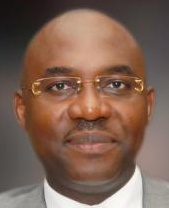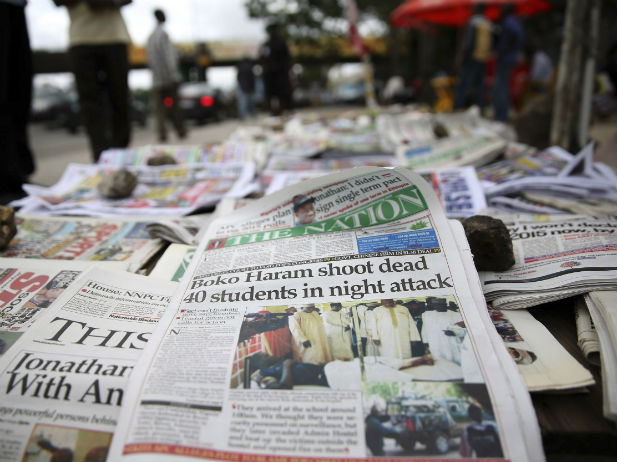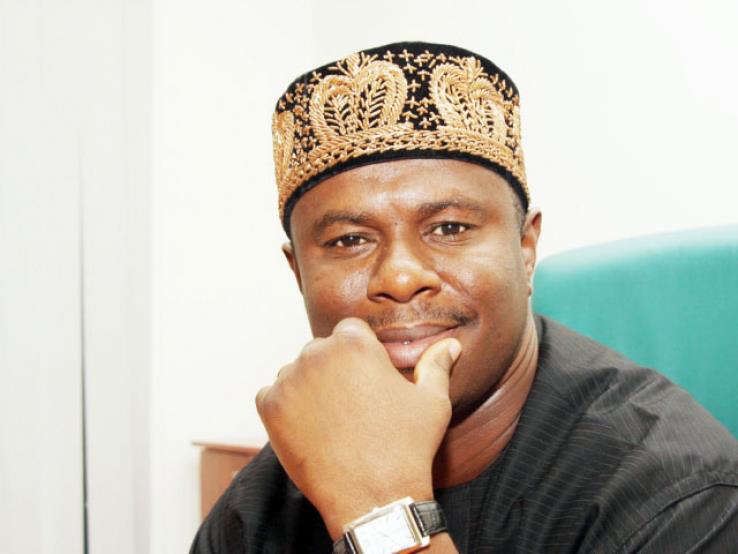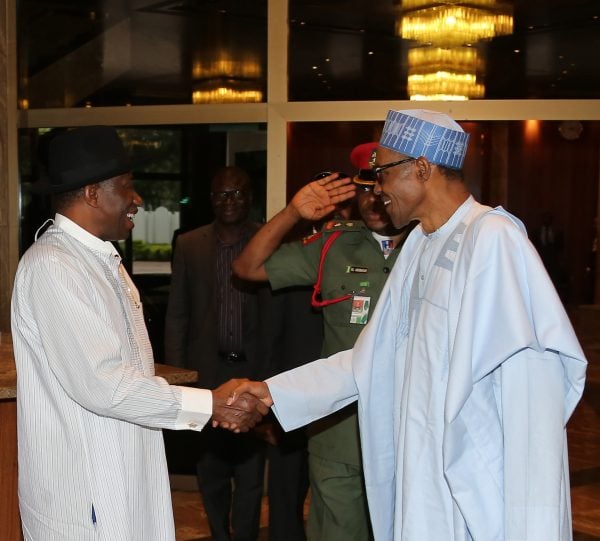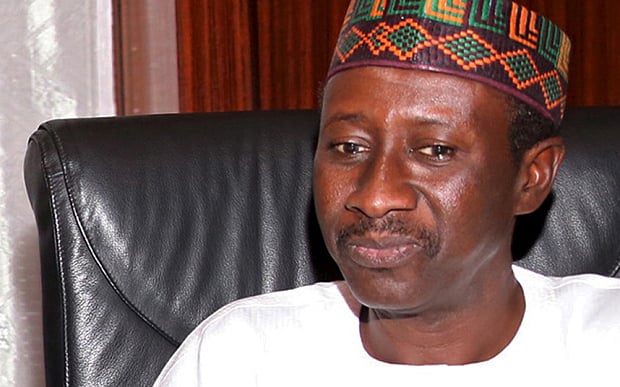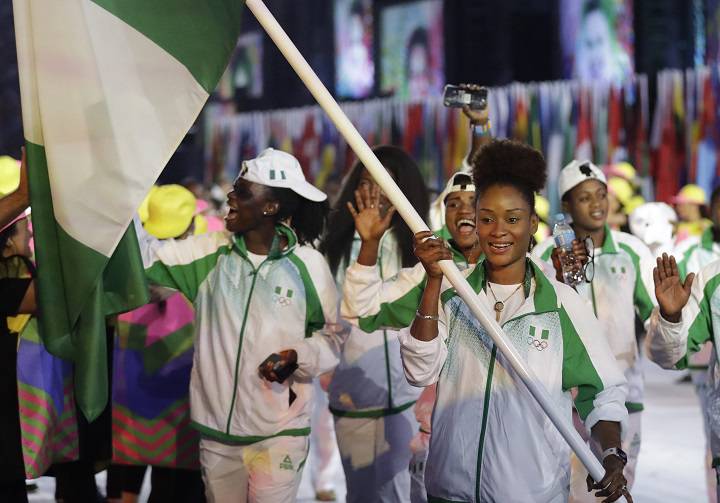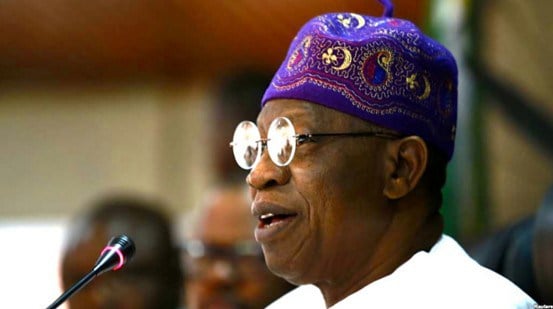Apparently tired of the old tactic of charge-and-bail of suspects, Nigeria’s security establishment resorted to a tool that looked rather extreme in novelty sometime in 2014 against the entire fourth estate of the realm. Beginning from the midnight of the D-Day, along key highways across the federation, troops ambushed circulation vans of media houses and held both consignments and personnel captive for the better part of the day.
Following the outrage expressed by media owners and the general public over the unprecedented assault, the reason advanced by the office of the National Security Adviser was no less odd. It was only a preemptory step, it stated in an accustomed haughty tone, against the new strategy by Boko Haram to ferry IEDs across the country. (In normal times, press vehicles enjoy preferential treatment at police check-points.)
But only Sambo Dasuki and his master would believe that yarn. The reason was simple: if the hunt was indeed for BH and its lethal wares, how come the press vans and passengers were still held indefinitely when no such contrabands were found besides, inside or beneath the day’s copies neatly wrapped as usual in white sheets torn off the reel stubs?
Of course, there was more to the melodrama on the highway. A few incidents had happened in frighteningly rapid succession a few days earlier. Tension had arisen over a story of land grab broken by the Abuja-based Daily Trust. The murky tale starred several Army hierarchs and some powerful figures in the security chain. Against the backcloth of the ludicrous theory bandied by the NSA for the highway siege, the popular thinking was that it probably had more to do with the expectation, if not fear, in high places that a more damaging follow up was underway.
Advertisement
Of course, the clampdown continued, though now sporadically across few locations, for several days in what seemed an improvisation of the Goebbelsian tactic against the public mind. Tell or act a lie repeatedly, according to Adolf Hitler’s inimitable propaganda marshal, and it begins to appear or sound like verity.
As the account – perhaps the most probable of all the speculations – put it, in their desperation to explain the perfidious act on the first day away, the fraternity of Big Men of Abuja so implicated could not think of a better counter-strategy than drag BH into the mix. (Indeed, just anything could be explained away in those giddy days in the name of fighting BH, the same way $15b carted from public treasury and shared among PDP leaders was boldly documented as funds expended on arms to fight the BH.)
Anyone with the faintest idea of the use and misuse of naked power in Abuja then would readily attest the dailies actually targeted by the mastermind of the highways lockdown were not more Daily Trust, Leadership and, of course, the heavyweight of the “opposition” press and understandably the nation’s widest-circulating newspaper, The Nation. The trio was seen as the most implacably opposed to the high comedy going on in Abuja then disguised as governance by Jonathan and his people. So, other publications so caught in the middle only suffered what they call “collateral injury”.
Advertisement
Interestingly, that 2014 lockdown would become the fodder for a sadder story a year later when a section of the print media was dragged into Dasukigate in the name of “compensation” for the losses incurred at the hands of troops on the highway. But once it became clear the provenance was tainted, The Nation, arguably the biggest casualty of the 2014 ambush being the widest-circulating, did not only rush to disclaim the arrangement in the strongest language possible but elicited further applause from the ethically-minded by being the first to return to the Federal Government the N10m cheque it earlier received as “compensation”, thus imposing a moral obligation on others to follow.
By returning the N10m cheque, The Nation not only identified with a country mindlessly betrayed by those entrusted with public trust, but must have also made peace with its own corporate conscience. To act otherwise would be a negation of the letter and spirit of its own very motto, “Truth in defence of freedom”. That would be inconsistent with the very lofty value it espoused from the outset, the defence of which it had toiled, even fought, relentlessly in the past ten years.
Still, by that singular act, it demonstrates powerfully the moral obligation of the media beyond the beauty of the printed word and the smell of fresh inks. As the conscience of the society, the media should strive to live above the social average. Only then can its words make any meaning or its voice carry any moral weight.
Indeed, in the past week, accolades have continued to pour in torrents for what is easily acknowledged today as Nigeria’s most successful newspaper in the past decade. Overall, those given to reductionism would perhaps be quick to ascribe that to the perceived deep pocket of its promoters. While it is true that enough cash is indispensable in newspaper undertaking, perhaps even more critical is the value it espouses and the cause it chooses to fight and defend.
Advertisement
If money is truly all that matters in the business, a publication like Compass that had surfaced soon after The Nation and made no pretense about its sole mission to be seen as the arch rival would still be kicking today. The truth is, on top of the mountain of cash, a paper should stand for something. How socially relevant that is will ultimately define its character and brand worth. It determines how it connects with the people and how long that intercourse lasts. That sort of emotional asset is something all the cash in the world cannot buy.
While it is true the promoters were fateful at the teething stage, it should however be stressed that The Nation’s survival in an industry where mortality rate is high is also rooted in its value of modesty and sobriety. Its continued vitality is only because it evolved not from life on the fast lane, but the old-fashioned way of earning its own existence from only returns from copy sale and still modest advert revenue grown from zero base.
Little wonder then that from the humble beginnings in the even more humbling neighborhood of Ladipo, Lagos, The Nation has morphed into a big lion whose roar echoes far and wide. The species immortal French hero, Napoleon Bonaparte, says should be dreaded by powers-that-be more than a thousand bayonets or a standing army.
Doubtless, part of its appeal is a formidable commentariat leaning heavily towards the progressive ideology. Though liberal in creed, the stable is however fanatical in the pursuit of the values it professes. Part of the beauty of its own progressivism is that its advocacy elides all Nigeria’s known ancient fault-lines: ethnicity, sectionalism and sectarianism. Though headquartered in Lagos, The Nation has consistently spoken and fought for pan-Nigerian interest even when some competitors don’t mind being profiled as championing sectional interest.
Advertisement
Depth has also paid off. Following the wise counsel of the famous American publisher, Joseph Pulitzer, The Nation is not only content with merely printing news. After breaking the stories often in a dramatic fashion unique to it, its voice is never mute or muffled thereafter in the moments of national dilemma. And the position it takes is never inconsistent with the defence of the common man. An instinctive affinity with the underdog.
Of course, fighting for the poor invariably means opposing the establishment which is never always a materially rewarding adventure for both the newspaper and its workers. Not only would the newspaper be blacklisted from official patronage, its journalists would not be welcomed at some functions.
Advertisement
From the foregoing, it then becomes easier to understand why The Nation kept a slender weight for many years on end in terms of advertisement even when verifiable industry records began to show it had overtaken the competition on copy sale. From the beginning, the unwritten rule wherever PDP was in charge or had influence was deny the paper patronage. And many a top player in the corporate world simply followed suit, afraid of official backlash.
It is therefore a testimony to the forbearance of its promoters in not giving up and the loyalty of workers not yielding to material temptation that The Nation survived all the trying moments in the past decade. Their only consolation perhaps being the awareness that by the outstanding stories published steadily the paper was growing where it mattered most: registering in people’s minds more and more, even if the big advertisers still chose to keep their distance.
Advertisement
In toasting its tenth anniversary today, what should be celebrated also is the price paid for principle by the management led by the self-effacing Victor Ifijeh and the character shown by workers in the face of temptation all the way. It is a testament to that uncommon strength of character that The Nation, till the end of PDP’s naira regatta last year, simply refused to mortgage its soul for the mega fortune in wrap-around adverts. (The source of which has now been traced to the $15b blood money Dasuki shared.) Nor has it been implicated in the cash-for-award scam now so endemic in the industry.
Indeed, if any media house deserves plaudits today for serving as intellectual clearing-house for the peaceful dethronement of PDP as ruling party last year thereby turning a giant page in Nigeria’s political history, it is undoubtedly The Nation. Even with APC now controlling power at the centre, the paper has not stopped firing.
Advertisement
By dutifully fulfilling its own part of the social contract in the past decade, the newspaper has in a way helped in nurturing a better society.
Views expressed by contributors are strictly personal and not of TheCable.
Add a comment
